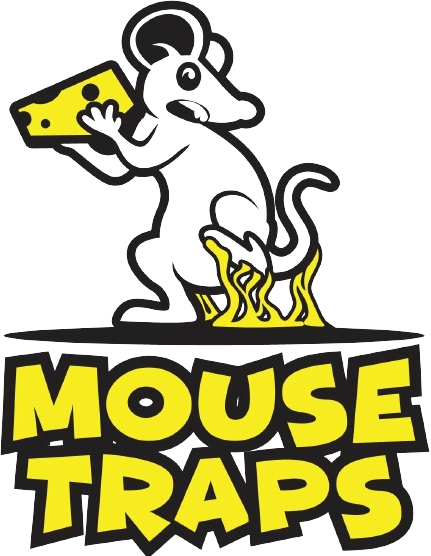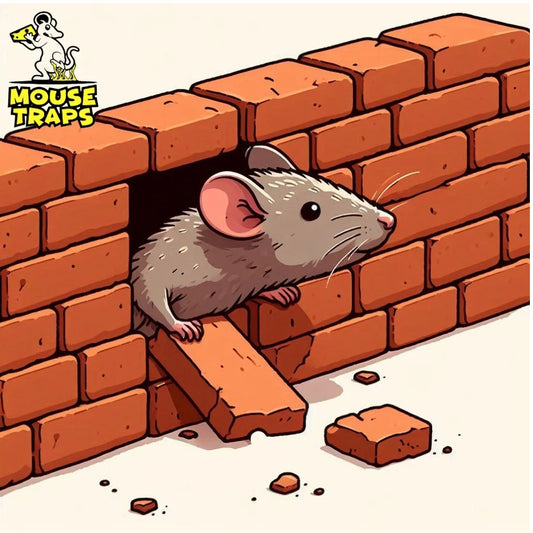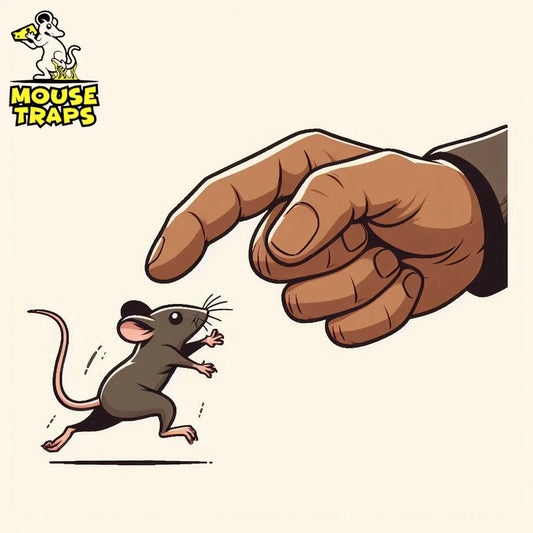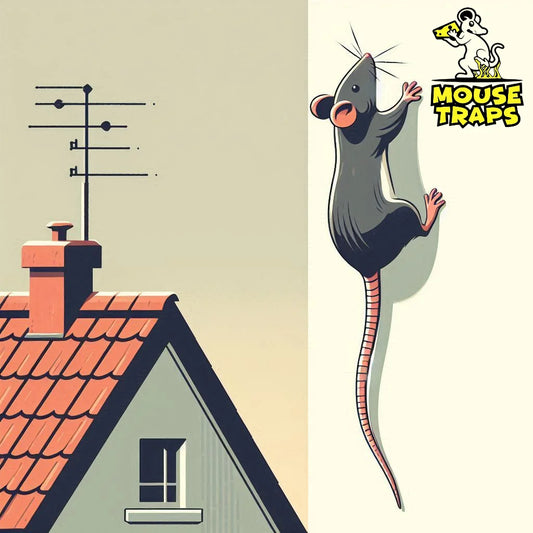Introduction:
When it comes to dealing with pesky rodents like rats, the age-old solution of using traditional poisons has long been the norm. In todays world, where the focuss, on sustainability and being mindful of the environment. it's important to reassess our approaches. Lets talk about the simple mouse traps. A solution that not deals with rat problems effectively but also does so in an environmentally friendly way. In this guide we will delve into the effectiveness of mouse traps, as a substitute, for rat poisons commonly used in the United Kingdom. We'll examine their practicality and friendly features highlighting how mouse traps are positively impacting UK residents facing pest problems.
Understanding the Need for Eco-Friendly Solutions:
Rat infestations pose a myriad of problems for UK residents, ranging from property damage to health concerns. Traditional rat poisons, while effective in eliminating rodents, come with their own set of drawbacks. These toxins have substances that can put at risk not the intended pests but also other animals and pets. Additionally the remains they leave can linger in nature leading to pollution, in ecosystems.

The Rise of Mouse Traps: An Eco-Friendly Alternative:
In recent years, there has been a notable shift towards more sustainable pest control methods, with mouse traps emerging as a frontrunner in this endeavor. Mouse traps provide a method, for dealing with rodents compared to poisons reducing the chance of secondary harm. Furthermore numerous contemporary mouse traps are crafted using materials minimizing their impact, on the environment.

Types of Mouse Traps:
When it comes to mouse traps, there's no shortage of options available on the market. From traditional snap traps to more humane live-catch traps, choosing the right type depends on various factors, including the severity of the infestation and personal preferences. Here's a breakdown of the most common types:
Live Humane Mouse Traps:
Live humane mouse traps are designed to capture mice without harming them. These traps typically consist of a small box or container with an entry point that allows mice to enter but not exit. Once inside, the mice are trapped until they can be released back into the wild.

Benefits:
-
Non-lethal: Live humane mouse traps provide a humane way to deal with mouse infestations without resorting to lethal methods such as poison or snap traps.
-
Environmentally friendly: Since live traps do not use harmful chemicals or materials, they are environmentally friendly and do not pose a risk to other animals or the ecosystem.
-
Reusable: Many live traps are reusable, allowing you to catch multiple mice without needing to purchase additional traps.
-
Safe for indoor use: Live traps are safe to use indoors, making them suitable for use in homes, businesses, and other indoor environments.
-
Ethical: Live traps align with ethical principles of animal welfare, allowing you to address mouse infestations while minimizing harm to the animals involved.
Sticky Glue Mouse Pads Traps:
Sticky glue mouse pad traps are flat sheets or pads coated with a strong adhesive that traps mice when they come into contact with the surface.

Benefits:
-
Easy to use: Sticky glue mouse pad traps are simple to set up and require no baiting or additional steps. You simply place them in areas where mice are active.
-
Effective: These traps are highly effective at capturing mice, as the strong adhesive prevents them from escaping once they come into contact with the trap.
-
Versatile: Sticky glue mouse pad traps can be used in various locations, including indoors and outdoors, making them suitable for a wide range of situations.
-
Safe: While sticky glue traps are not considered humane since they result in the death of the trapped mouse, they are relatively safe to use and do not pose a risk to humans or pets if handled properly.
-
Disposable: Once a mouse is caught in a sticky glue trap, the trap can be disposed of, making cleanup easy and convenient.
The Environmental Impact of Mouse Traps:
One of the key advantages of using mouse traps over traditional poisons lies in their minimal environmental impact. Unlike poisons, which can contaminate soil and water sources, mouse traps pose no risk of pollution. Moreover when focusing on pests mouse traps contribute to maintaining the harmony of ecosystems decreasing the unintended harm typically linked to wide ranging toxins.

FAQs:
Conclusion:
In summary mouse traps present an option compared to rat poisons as they deliver efficient rodent management while upholding environmental sustainability. UK citizens are facing rat problems. Using friendly methods such, as mouse traps can reduce the effects on homes and the environment. By making decisions and following practices we can improve our living spaces, for future generations. So why delay taking action? Take the first step towards a rat-free future with eco-friendly mouse traps today!




